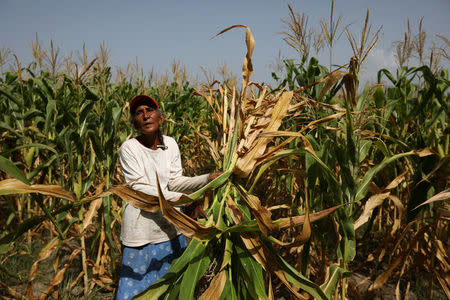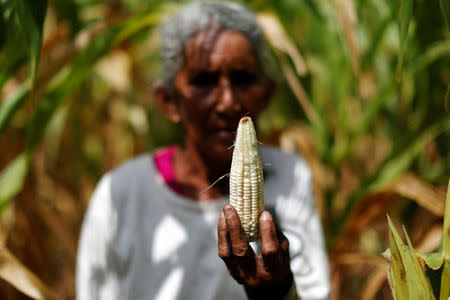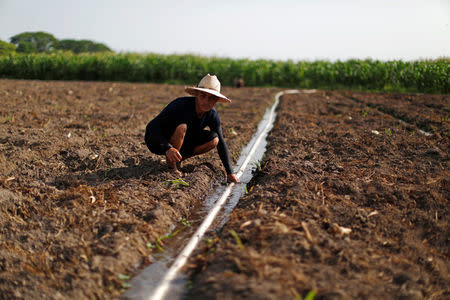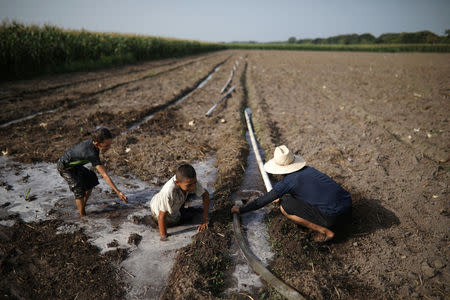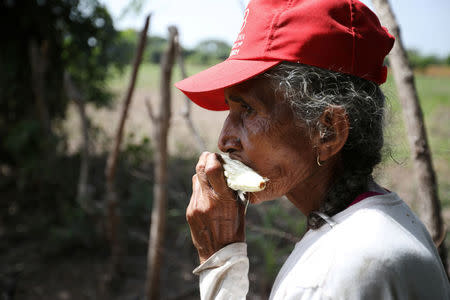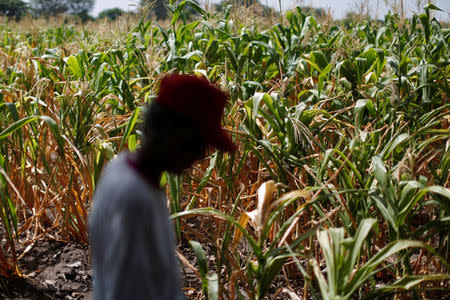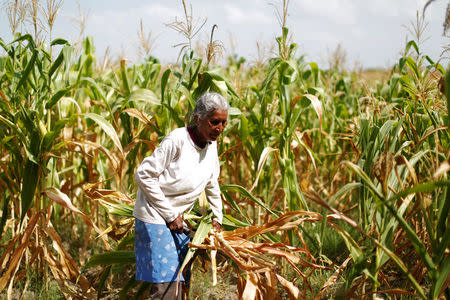Salvadoran farmers lament brutal drought, hope for recovery
By Nelson Rentería JIQUILISCO, El Salvador (Reuters) - Encouraged by a good harvest last year, Maria de Jesus Lopez, a modest farmer, decided to boost her production of corn on the land she rents, but an unexpected drought in El Salvador has cost her the whole harvest. With a machete in hand, the thin Salvadoran woman examines the fields, hoping to find an ear of corn that has survived. "We were not expecting this blow," Lopez, 65, said in a rural area in the town of Jiquilisco, about 100 kilometers (60 miles) southeast of capital city San Salvador. The lack of rain, she said, has cost her about $2,000 dollars. Lopez is one of more than 77,000 corn farmers severely hurt by a month-long drought that has affected more than half the country and prompted the government to declare a "red alert" to distribute resources to victims. Between sobs, Lopez, who shares a home with seven relatives, recalled that she had planted 3.5 hectares of corn hoping for a yield of 600 sixty-kilogram bags. "We are not going to harvest anything," she said. The drought has triggered the loss of 1.6 million bags of corn, a staple of the Salvadoran diet. Central American experts predict that in the next three months the region will continue to see low levels of rain, prompting authorities to scramble for solutions. STRUGGLING TO RECOVER Every morning, Luis Miguel Joya, 26, comes to his fields to install an irrigation system. He had to plant again in dry ground after his crops failed to survive the drought that has struck Jiquilisco, one of the areas declared to be in a state of "red alert" by authorities. "This was very difficult, but we are here trying to recover," he said as he installed various tubes to water his crops, wearing a black hat to shield him from the sun. The Ministry of Agriculture and Cattle has said that producers affected by the drought will receive aid to help them recover their crops, primarily corn. The government is also evaluating whether there is damage in other sectors such as cattle, sugar and coffee, one of the country's major exports. "No one is going to be left without seeds to plant again and recover losses," said Salvadoran Agriculture Minister Orestes Ortez. Meanwhile, Lopez is hoping it will rain soon or she will have to turn to a nearby town to fish or extract sand for construction. "If it rains, I will plant again, if God lets me," she said. (Reporting by Nelson Renteria; Writing by Julia Love; Editing by Steve Orlofsky)
